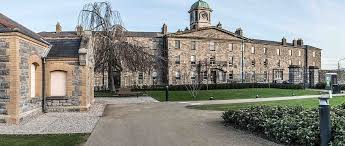Economics is the study of how societies, governments, businesses, households and individuals allocate their resources and make choices and the consequences of their decisions. They’re concerned with consumers, workers, industry, commerce and government at the level of the individual and the market (micro-economics) and the national economy (macro-economics).
This course focuses on the analysis of how these and other factors influence the goods and services an economy produces, the resources it uses in production, and the distribution of its output.
It also focuses on contemporary issues such as the globalisation of world markets, international monetary systems, privatisation of industry and the management of the economy.
The modules will expose you to a wide range of cutting-edge knowledge in the area of economics and finance while giving you a solid grounding in the fundamentals of economic thought that you’ll be able to apply to new events in the economy both in Ireland and internationally for many years to come.
All this is complemented by a focus on financial services, and developing an understanding not only of the internal issues in an organisation but also the external pressures and opportunities that firms deal with regularly.
The course has a strong core in both Economics and Finance, demonstrating the linkages between the topics and how economic thought has shaped the discipline of Finance, while current financial market behaviour provides food for thought for economic theory.
You can develop your own interests in the final year thanks to a wide range of options, and the opportunity to work on an interesting research issue.
The course involves case studies, presentations, group work and projects as well as the more formal lectures, with tutorial support. All this will develop your analytical abilities and financial knowledge as well as key skills and competencies in team working, independent research and critical analysis.

